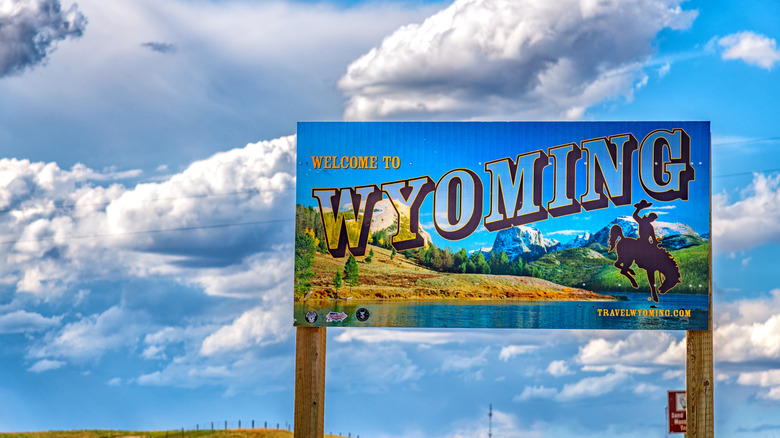This US State Imported $213 Million In Processed Food And Beverages Last Year
While significant time and energy has been spent discussing how Trump's tariffs will affect popular companies, and even how tariffs will ultimately impact the car market, a more important consideration is how tariffs will affect individual consumers. This is especially true when you consider that certain states in the U.S. rely on imported goods more than others, meaning residents of those states could be in for more tariff-induced price increases than their neighbors.
When considering states in the U.S. with the largest imports, you might assume that states with the largest populations would be the most affected by tariffs and increased costs. However, it can also be worth looking at just how tariffs will affect individual states depending on just how much those individual states actually import — and what exactly they are importing. For example, states with less of their own production in certain categories are set to face much more financial difficulty than those with their own in-state manufacturing and production. This brings us to Wyoming, which is a significant contributor to the country's agricultural industry via cattle and meat processing, but has little in the way of processed foods and beverage production. In fact, according to foreign trade data from the U.S. Census Bureau, Wyoming imported a whopping $213 million worth of processed food and beverages in 2024. This means that tariffs are due to hit Wyoming residents particularly badly in the grocery store.
Understanding Wyoming's imports
Only two states have imported processed food and beverages as their top import category in the U.S. – Wyoming and Vermont. Interestingly, Vermont's import total in this category for 2024 was significantly more — $686 million — despite not being that much more populated. It's worth noting that these two states actually rank as the least and second-least populous states in the entire country. Vermont's population, as of 2024, was 648,493, according to the U.S. Census Bureau, while Wyoming's population was 587,618 in 2024, putting it dead last in terms of population, despite having the 10th largest state land mass.
This means that tariff induced price increases are set to more deeply affect different categories in every other state. For example, the highest value import category for 14 states in 2024 was cars and auto equipment, while computers and electronics were the top import category in nine states. While rising car prices are certainly a problem for consumers, it's hard to argue that a new car is as significant, or necessary, as affording grocery goods. Also, while Trump might have not placed specific tariffs on food goods beyond the general 10% tariff on all imported goods, it's important to consider how other elements of packaged food and beverages will still be affected by tariffs on things in food packaging. For example, Trump's 25% tariff on aluminum could add to the cost of canned beverages and tinned foods — hence why you might want to stock up on tuna before prices increase.
Wyoming's relationship with Canada
While general tariffs on imported goods are set to impact everything from the cardboard needed to ship food products to the packaging itself, Wyoming, in particular, is in for even higher price increases thanks to who it imports those goods from. Specifically, Wyoming's largest trading partner is actually Canada. In fact, according to Cowboy State Daily, Wyoming imports roughly $568 million in goods annually from the country's northern neighbor. As a refresher, Trump implemented a 25% tariff on all Canadian goods, as of March 4, 2025. Among the many tariff-impacted goods that the U.S. imports from Canada are oil, natural gas, and pharmaceuticals. Many of these are specifically imported into Wyoming.
To get back to food goods specifically, according to the Government of Canada, Wyoming imported $41.4 million worth of agricultural goods from Canada in 2023. This includes things like canola oil, baked goods, and even potatoes. Beyond this, it's also important to consider how retaliatory tariffs will impact Wyoming's exports, and the farmers and agricultural workers who will now face higher costs to export their goods. A Canadian Consulate General in Denver report from 2024 highlights that the state of Wyoming exports $401 million worth of goods to Canada annually. The report also highlighted that Wyoming exports more to Canada than it does to Chile and Brazil combined – the state's next two largest foreign markets. Many of Wyoming's largest export categories to Canada – like salt, Sulphur, fuel oil, and chemicals — are all currently subject to 25% tariffs entering Canada.


